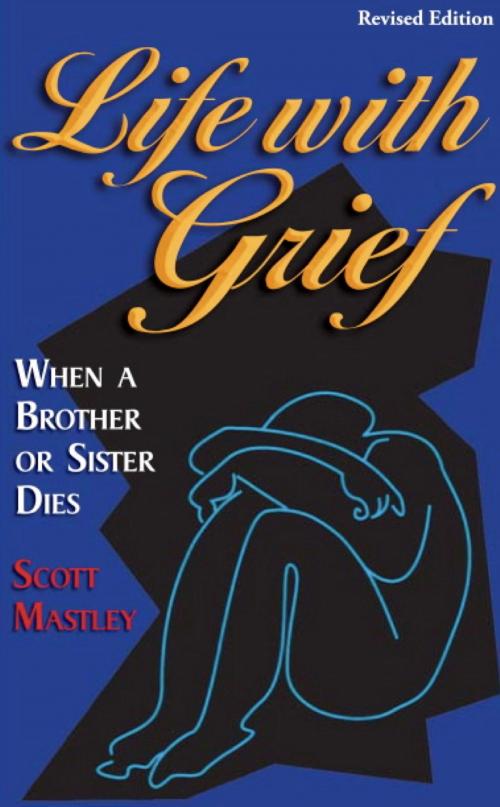Life With Grief
When a Brother or Sister Dies
Nonfiction, Family & Relationships, Family Relationships, Death/Grief/Bereavement| Author: | Scott Mastley | ISBN: | 9781624880742 |
| Publisher: | BookBaby | Publication: | November 1, 2012 |
| Imprint: | Language: | English |
| Author: | Scott Mastley |
| ISBN: | 9781624880742 |
| Publisher: | BookBaby |
| Publication: | November 1, 2012 |
| Imprint: | |
| Language: | English |
The death of a sibling has an uncharted impact on the surviving brothers and sisters, who are often overlooked in the details of funerals, burials, and support for parents during the initial and subsequent grieving periods. Yet sibling grief is profound, with universal components that are minimally addressed by grief specialists. Siblings from grade school through adulthood have a shared history with the deceased brother or sister, have developed strong attachments, even while distinct personality styles and conflicts may have emerged, and have expectations of how they will be available for one another in the future. Life With Grief describes this attachment, expectation, and response to loss through Scott Mastley’s experience of the death of his brother, Chris. Death is a shocking end to these expectations, and the grief process prompts an assessment of appreciations, regrets, resentments, wishes, and an awareness of the loss for what could have been, even if the sibling actively tries to suppress this process. A shift in both the surviving siblings’ internal world and the external world takes place simultaneously, resulting in a loss of innocence and a redefinition of oneself in the world. Life With Grief, formerly published as Surviving a Sibling was the first book to examine this process and to offer surviving siblings a voice that may resonate with their own as they grieve this profound loss. Who should read this book? Obviously, surviving siblings will recognize familiar and possibly thus far unspoken aspects of their grief, and risk reaching out to others to share it. It will appeal not only to those enduring the recent loss of a brother or sister, but also to those of us who have lost a sibling years ago and have elements of unfinished business in the grief and resolution process. Bereaved parents should also be encouraged to learn how their surviving child or children’s grief is unique and in need of attention. Similarly, friends of surviving siblings will gain insight into how to offer support and help. Counselors, clergy, youth ministers and group leaders, physicians and health care personnel, educators, and funeral home staff who come into contact with teens and adults who have lost a sibling not only recently but in the past, should be familiar with the issues identified in Life With Grief. Scott Mastley presents us with a book short enough to read quickly, thoughtful enough to read a little at a time, and straightforward enough in content to lead us into our own strong responses to grief. It was written by a bereaved sibling for bereaved siblings and those who love them.
The death of a sibling has an uncharted impact on the surviving brothers and sisters, who are often overlooked in the details of funerals, burials, and support for parents during the initial and subsequent grieving periods. Yet sibling grief is profound, with universal components that are minimally addressed by grief specialists. Siblings from grade school through adulthood have a shared history with the deceased brother or sister, have developed strong attachments, even while distinct personality styles and conflicts may have emerged, and have expectations of how they will be available for one another in the future. Life With Grief describes this attachment, expectation, and response to loss through Scott Mastley’s experience of the death of his brother, Chris. Death is a shocking end to these expectations, and the grief process prompts an assessment of appreciations, regrets, resentments, wishes, and an awareness of the loss for what could have been, even if the sibling actively tries to suppress this process. A shift in both the surviving siblings’ internal world and the external world takes place simultaneously, resulting in a loss of innocence and a redefinition of oneself in the world. Life With Grief, formerly published as Surviving a Sibling was the first book to examine this process and to offer surviving siblings a voice that may resonate with their own as they grieve this profound loss. Who should read this book? Obviously, surviving siblings will recognize familiar and possibly thus far unspoken aspects of their grief, and risk reaching out to others to share it. It will appeal not only to those enduring the recent loss of a brother or sister, but also to those of us who have lost a sibling years ago and have elements of unfinished business in the grief and resolution process. Bereaved parents should also be encouraged to learn how their surviving child or children’s grief is unique and in need of attention. Similarly, friends of surviving siblings will gain insight into how to offer support and help. Counselors, clergy, youth ministers and group leaders, physicians and health care personnel, educators, and funeral home staff who come into contact with teens and adults who have lost a sibling not only recently but in the past, should be familiar with the issues identified in Life With Grief. Scott Mastley presents us with a book short enough to read quickly, thoughtful enough to read a little at a time, and straightforward enough in content to lead us into our own strong responses to grief. It was written by a bereaved sibling for bereaved siblings and those who love them.















